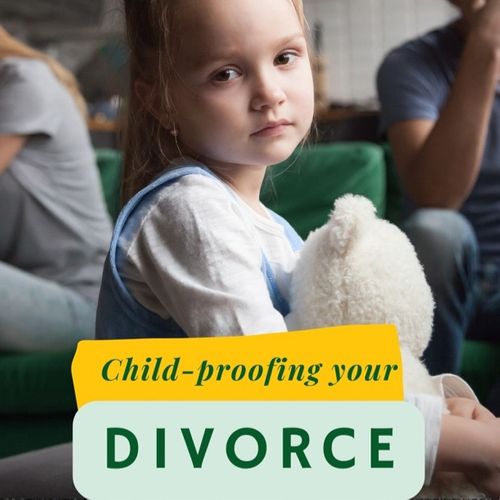7 Things Your Child's Therapist Wishes They Could Tell You About Your Divorce
Apr 20, 2022 · 2 mins read
0
Share

In the US 44% of all marriages end in divorce according to a study in 2019, and statistics show that one in two children will have divorced parents. Studies show that children of divorce are more likely to experience problems with academics, behavior, and mental health.
Save
Share
As a therapist who works with children, I see many kids impacted by divorce. And like Vegas, what happens in therapy, stays in therapy. But there are a few things I wish those parents knew to help buffer their children from the effects of divorce.
Save
Share
1. Therapy can be a game-changer. Oftentimes children feel torn between parents. That's why having a safe place to talk about experiences and process feelings is crucial. A critical element is that the therapist is not on either parent’s “side”—we are there for them.
Save
Share
2. Confidentiality is crucial. Children need a place where they don't have to worry about their words being shared with parents or used in court. Requests for your child's therapist to be a part of custody cases can be harmful to your child, and will usually be turned down.
Save
Share
3. Kids need both parents. Even if you can't stand your ex, they are still the parent of your child. Kids shouldn’t feel like they lost a parent in the process. Unless there is a safety concern, make sure they are able to spend time with them.
Save
Share
4. Be careful with your words. When with one parent, it's common for children to feel like they have to dislike the other, which can lead to feeling depressed. It's crucial to say positive things about your ex and continue to refer to them as mother/father.
Save
Share
5. Be honest at an age appropriate level. Parents often struggle with what to say to explain the divorce to their children. Honesty is always the best policy, but be sure to leave out the grown-up details, and only share what is appropriate for their age.
Save
Share
6. Stay involved in their life. It can be easy to fall into a routine where one parent takes on the responsibilities of school or extracurriculars. But your involvement in these things communicates to your child that you are still there for them.
Save
Share
You may be ready to move on with your life, but remember that although you are divorcing your ex, your child isn't. Divorce can be hard on everyone in the family, but by following these steps, you can set your child, and yourself, up for success.
Save
Share
0